Ageless: The New Science of Getting Older Without Getting Old audiobook
Hi, are you looking for Ageless: The New Science of Getting Older Without Getting Old audiobook? If yes, you are in the right place! ✅ scroll down to Audio player section bellow, you will find the audio of this book. Right below are top 5 reviews and comments from audiences for this book. Hope you love it!!!.
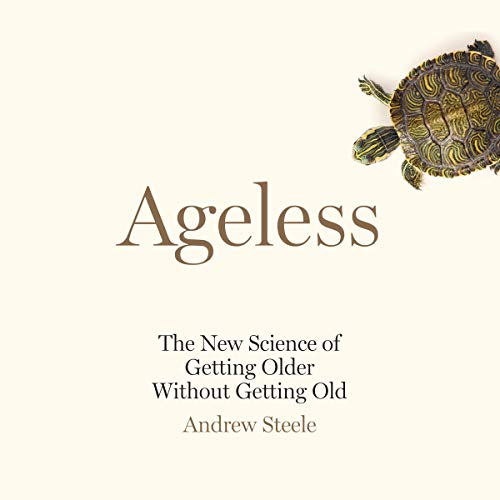
Review #1
Ageless: The New Science of Getting Older Without Getting Old audiobook free
Overall: a decent book. Delves into the topic of aging and where the science is today. However, Steele offers only a research based background about the field. His credentials on the topic are thin, and his own contributions are not a topic of the book. Instead, the book more focuses on a state of affairs in the field of gerontology as of late 2020. An interesting read for anyone curious about the relative history of Gerontology.
But I have a bone to pick with Andrew Steele.
As a lover of Gerontology, I try to read as much as I can on the topic. The reason why I gave this book only 2 stars is because of the fact that it feels like most of the book came from David Sinclairs Lifespan. Coincidentally, David Sinclair (arguably the most decorated and influential individual in the field of gerontology today) is not mentioned in the book once. The reasoning for this? The book is essentially Sinclairs book with his name and accredited research omitted.
Glad I bought it. Glad I read it. But if you want to know about the field from the person whos leading the field, and dont want to read more than one book? Save your time (and your money), and buy David Sinclairs Lifespan
Review #2
Ageless: The New Science of Getting Older Without Getting Old audiobook streamming online
Andrew Steeles book Ageless is a lengthy review of the many advancements being made in science and medicine concerning aging, or more accurately, how science and medicine are trying to stop the aging process, or at least slow it down. The science and medicine, study after study, advancement and hopeful outcomes, drone on incessantly. In almost all of them, Steele gives the context, tells us where it hopes to lead, and then goes to the results from the various testing with: mice; rats; worms; monkeys; and other testing subjects. I would rather have seen positive, science-based results, from actual humans at the end of these ventures. Apparently, theyre all hopeful, coming to a doctor near you in the near future.
You will hear a lot in this book about telomeres, mitochondria, proteins, the immune system, senescence, DNA, and other arcane scientific pursuits and items. All of these could be helpful to some people at some future time, but they all seem to end up at the same place: we have much hope for these procedures as a cure to aging. Good, thanks, now what?
Well, fortunately, the author wraps this long, too verbose book up in a way that we can all understand and benefit. But you might wonder why you read this book when you get to chapter 10, a kind of how to live a longer, healthier life procedural. Can someone please convey to this author the phrase re-inventing the wheel. The authors exact advice for living a longer life: 1. Dont Smoke. 2. Dont Eat Too Much. 3. Get Some Exercise. 4. Get Seven To Eight Hours Of Sleep A Night. 5. Get Vaccinated And Wash Your Hands. 6. Take Care Of Your Teeth. 7. Wear Sunscreen. 8. Monitor Your Heart Rate And Blood Pressure. 9. Dont Bother With Supplements. 10. Dont Bother With Longevity DrugsYet. 11. Be A Woman. Yes, that last one is really in the book.
I have a strong interest in health and the aging process, which prompted me to read this book. Quite frankly, I felt like I wasted my time reading through this entire book, which feeling was confirmed explicitly when I got to the authors recitation of time-tested principles for good health. Had I known
Review #3
Audiobook Ageless: The New Science of Getting Older Without Getting Old by Andrew Steele
If youre considering this book in hopes of finding some magical supplement or salve to add ten years to your life, forget it. The author is a PhD physicist turned computational biologista serious scientist. In Ageless, he relates the latest findings about the emergence of a new field called biogerontology. The word is a mouthful, but its meaning is transparent: its the study of the biological basis of aging and age-related diseases. And the author, Dr. Andrew Steele, contends that advances in the field hold out hope that in the foreseeable future a combination of drugs and genetic engineering can extend both the human lifespan and our healthspan.
In other words, as the subtitle of Steeles book suggests, we are on the cusp of learning how to get older without getting oldstaying healthy and active to the end. For me at age eighty, thats a mighty attractive proposition. Its hard to resist the prospect of living longer, so long as Im not bedridden or witless during the additional years.
A paradigm shift in the science of aging
Steele argues that scientists are now beginning to address the phenomenon of aging itself rather than just the signature diseases and infirmities that are associated with it. Its a paradigm shift, and if the scientists he promotes in this book receive the funding they need to move ahead aggressively, their efforts might make it possible for todays average global lifespan of 72.6 yearsalready nearly 10 years higher in the worlds richest countriesto extend to 100 by the end of the century. Not by curing cancer or heart disease, or squelching every pandemic disease to come down the pike, but by manipulating the mechanisms that determine our biological age.
For example, the author asserts, rather than going after hundreds of types of cancer and finding bespoke treatments for each, we could try to deal with the DNA damage which underlies them all, the senescent cells and chronic inflammation which aggravate them all and the faltering immune defenses which they must all slip past, and reduce the odds of getting cancer in the first place. He adds much later, given how far weve come in the last 50 years, it would be foolish to bet that the kind of systems biology wed need to cure aging wont be possible in the next 50. Living longer, he suggests, is in our future.
Ageless: The New Science of Getting Older Without Getting Old by Andrew Steele (2021) 321 pages
Chart of the causes of aging that prevent us from living longerDiagram of a typology of the causes of aging that is similar to Steeles. Image: from Lopez-Otin et al., The Hallmarks of Aging. Cell, 2013, via Brandon Keim on Medium.
Complex science made simple. Sort of. Sometimes.
For the average person, the science of aging is unfathomably complex. Steele makes it easy to understandup to a pointbut only so long as you have rudimentary knowledge of biology. As the son and brother of doctors, and the husband of a biologist, Ive picked up a little of that. But I still found myself alternately befuddled or feeling my eyes glaze over as I read Steeles detailed accounts of how some particular drug or gene acted to extend or truncate the life of mice in laboratory studies. Nonetheless, I found Ageless to be illuminating.
Whats astounding, Steele writes, is that the doubling of human life expectancy since the start of the 1800s has been achieved without any treatments for aging. Weve scored some indirect hitsimproved diets, exercise, cutting out smoking, and preventative medicines to reduce cholesterol or blood pressure all arguably slow parts of the aging process to some extentbut theres not a single drug or treatment available in your local pharmacy or hospital expressly designed to slow or reverse aging. Yet, there is every prospect that that will change in the years ahead. Continuing advances in biomedicine will make living longer likely.
Living longer through science
Steele makes clear that aging isnt one single thingbut nor is it thousands. We now known enough to attempt to place aging-related changes into categories. Most excitingly, there are few enough that we can hope not only to explain what drives the aging process, but potentially come up with treatments to address it. Other scientists have proposed grouping those changes into seven or nine categories. Steele describes ten hallmarks of the aging process, because given that aging is a multifaceted process, treating it is going to require a portfolio approach. As a result, there may well be dozens of treatments in our eventual repertoire.
DNA damage and mutations
Trimmed telomeres
Autophagy, amyloids, and adducts
Epigenetic alterations
Accumulation of senescent cells
Malfunctioning mitochondria
Signal failure
Changes in the microbiome
Cellular exhaustion
Malfunction of the immune system
If you understand all the language in this ten-item typology, youre way ahead of me. Individually, Steele makes each of these terms (more or less) understandable in Ageless. But the experiments he describes to explore how to counter them, and the treatments he proposes, are much harder to grasp. Suffice it to say that the science seems credible. In other words, Ill take his word for it.
Keep in mind that this is not science fiction. Steele reports on human trials underway on drugs developed to counter several of the items in his list. Subjects, both lab animals and, in a few cases, people, are already living longer as a result. And other scientists are deploying gene therapy, especially now with the benefit of CRISPR-Cas9, to address others.
Three parts to the book
Ageless consists of three parts. In Part 1, Steele describes An Age-Old Problem, noting the marked increase in life expectancy weve experienced in recent centuries. Part II, based on the typology above, is about Treating Aging. In Part 3, he advances his prescription for Living Longer. And that last part is the most disappointing. I surely dont need to be told again not to smoke, drink to excess, overeat, or fail to exercise. He mentions the promise inherent in probiotics, prebiotics and synbiotics, all of which are available in certain foods and food supplements. However, he cautions against the use of food supplements in general, many of which he insists cause more harm than good, while the others are of no use at all. Given what Ive learned from doctors and nutritionists, I believe he does too far with that claim. And vitamin manufacturers will not be happy.
Although Steele is more informative than Im suggesting here, Living Longer was less rewarding for me. It is, in part, an activists plea for the governments of rich nations to fund anti-aging research. Aging causes 85 percent of deaths in the U.S., but receives 6 percent of health research funding, he notes. But Im not the right audience for that message.
About the author
Image of Andrew Steele, author of this book about living longerAndrew Steele. Image: Phil Fisk/The Observer
Andrew Steeles bio on Amazon reads in part: Dr Andrew Steele is a scientist, writer and campaigner [British for activist] based in London. After a PhD in physics from the University of Oxford, Andrew decided that ageing was the single most important scientific challenge of our time, and switched fields to computational biology. He worked at the Francis Crick Institute, using machine learning to decode our DNA and predict heart attacks using patients NHS medical records. He is now a full-time science writer and presenter.
Review #4
Audio Ageless: The New Science of Getting Older Without Getting Old narrated by Andrew Steele
There was scientific data about mice studies and keeping them on a calorie restricted diet and being lean helped them live a longer and healthier life. He also went through the regular not smoking, eating nutritional diet, exercise, etc. etc. to get healthier.
Author also explained cellular level of why we age and the recommendations to slow the aging down. Then he discussed diseases that cause the body to age or get cancer sooner.
Nothing new about how to stop or prevent aging that hasnt been discussed before.
Review #5
Free audio Ageless: The New Science of Getting Older Without Getting Old – in the audio player below
Essentially, a brief summary of the book is that research is ongoing, there is some hope, but do not expect any treatment in the very near future, meanwhile eat healthy and exercise. Overall, it is a very good book for understanding the process of aging. Delves into scientific evidence and provides good description of the most recent developments. However, do not expect it to give you any valuable practical advice apart from you already probably know: you need eat healthy, do not smoke, exercise etc.
Recommend Books
Galaxyaudiobook Member Benefit
- Free 2000+ ebooks (download and online)
- You can see your watched audiobooks
- You can have your favorite audiobooks
Galaxy audio player
If the audio player does not work, please report to us, we will fix it as soon as possible (scroll up a little you will find the "REPORT CONTENT" button).




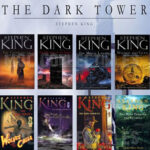
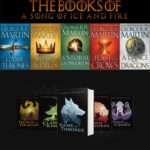
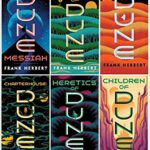
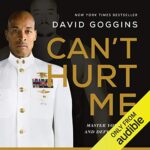




0 Comments: